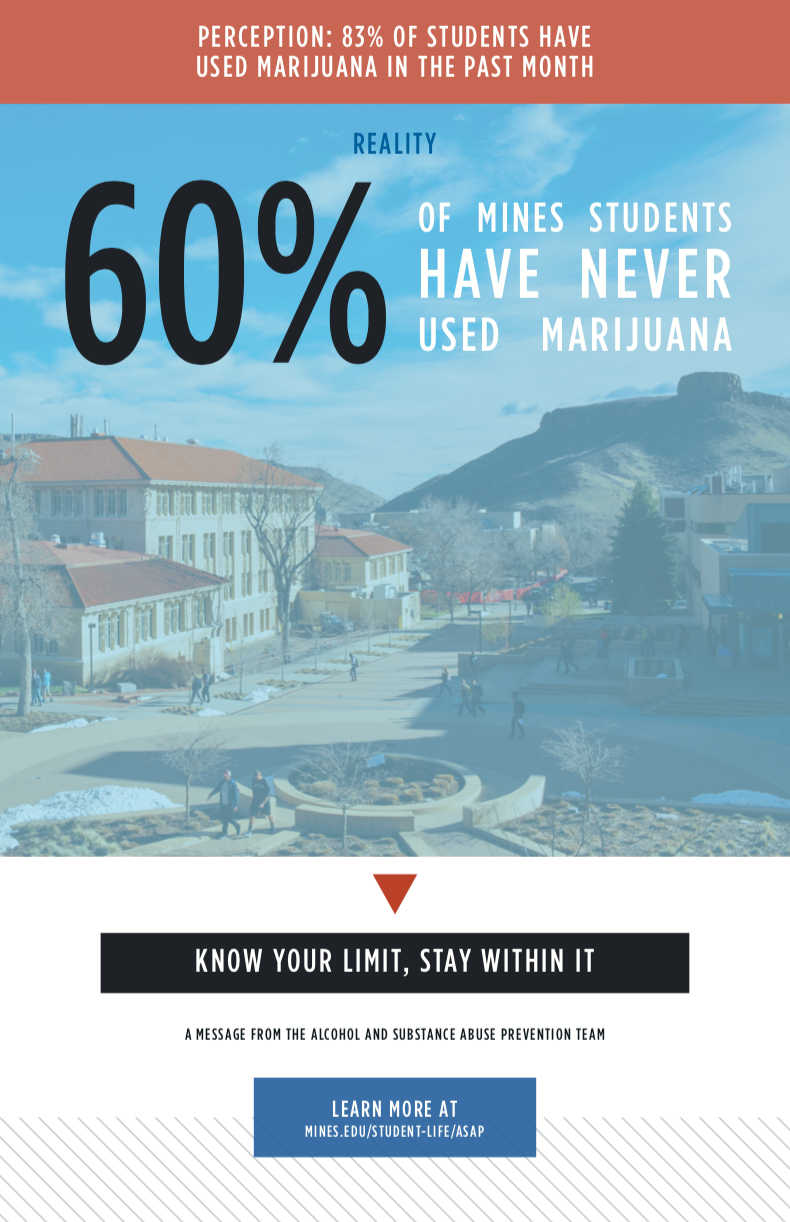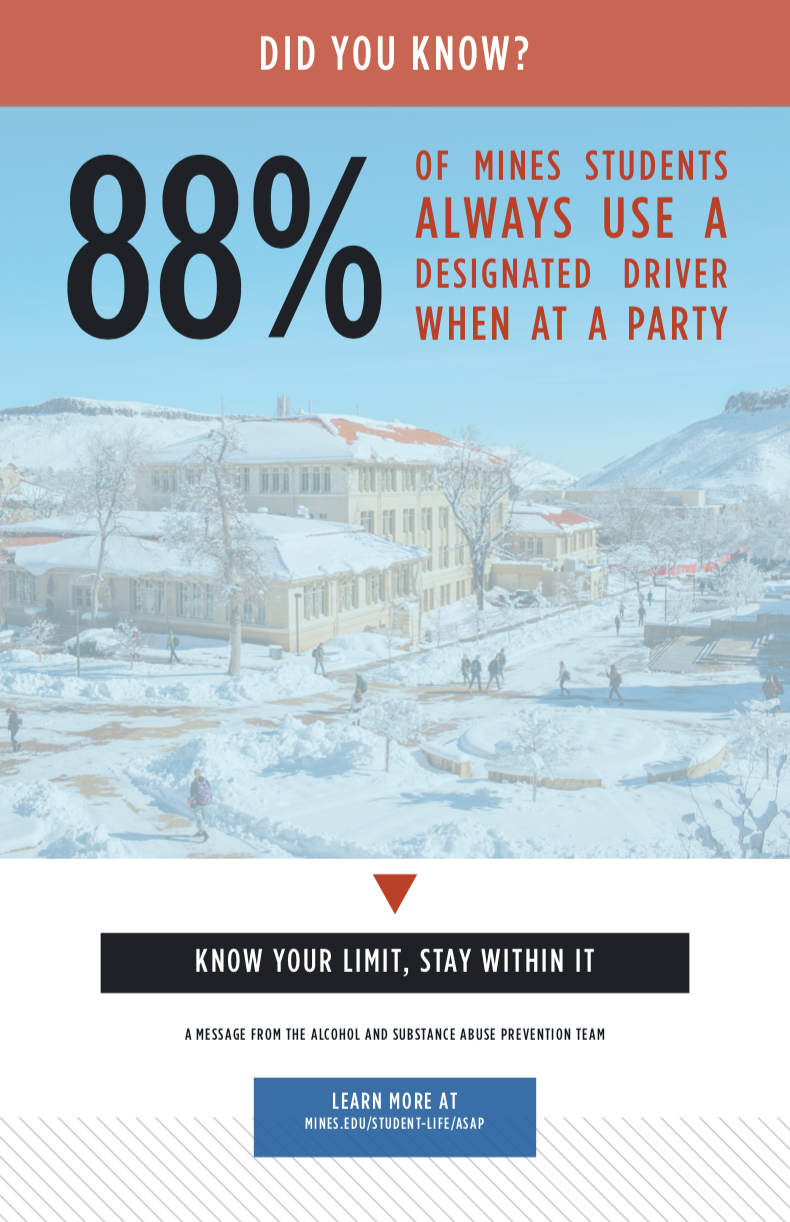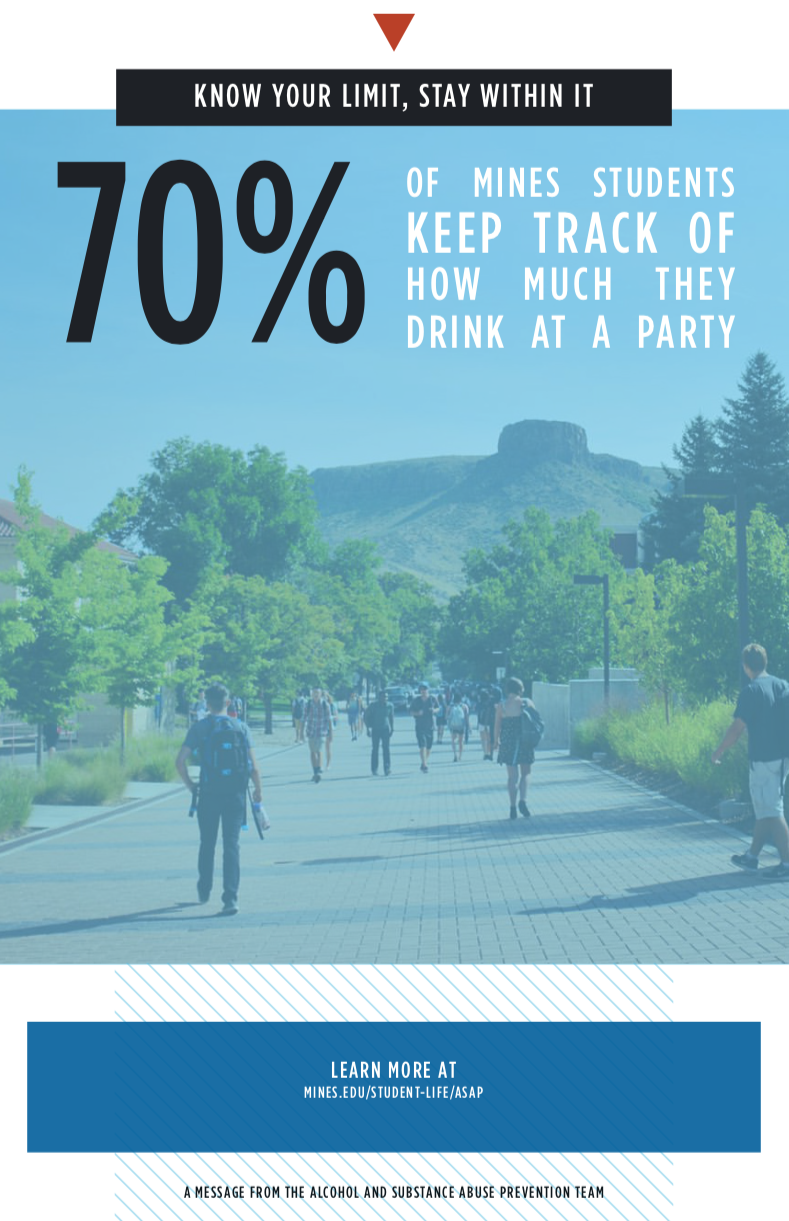Alcohol and Substance Abuse Prevention
Fentanyl Poisoning & Overdose Prevention
What You Need to Know About Fentanyl
At Colorado School of Mines, the health and wellness of our students, faculty and staff will always be our top priority. In recent years, however, the state of Colorado has seen a surge in deaths related to fentanyl overdoses.
To keep our Mines community safe, we’re answering the most common, and important, questions concerning fentanyl and offering tips on how to stay safe and what to do if you suspect someone is experiencing an overdose.
If you have additional questions, please don’t hesitate to reach out to egriffis@mines.edu.
Quick Links
What is Fentanyl?
Fentanyl is a synthetic opioid drug that is extremely potent. Fentanyl is classified as a Schedule II controlled substance, and under the supervision of a licensed medical professional, can be beneficial in treating patients with chronic or severe pain. In fact, fentanyl has been approved by the FDA an analgesic and anesthetic.
Without medical supervision, however, fentanyl is extremely dangerous, and due to its high potency, can easily prove fatal. According to the DEA, fentanyl is “approximately 100 times more potent than morphine and 50 times more potent than heroin.” As a result, individuals who use fentanyl recreationally (whether knowingly or unknowingly) are at a high risk for overdose.
Fentanyl is often mixed in with other drugs and can be found in a variety of forms.Fentanyl is often found in pressed pills and designed to look like other medications, such as Oxycodone or Adderall. It can be present in recreational drugs like MDMA. Additionally, fentanyl can be found in powder form, such as cocaine, or even as a liquid and has been found in the form of a nasal spray. No matter the form, fentanyl is extremely dangerous.

Why is Fentanyl So Dangerous?
Drug traffickers mix in fentanyl with other illicit substances, such as cocaine or heroin, because it is cheaper and easier to manufacture than other drugs. As a result, many people consume fentanyl unknowingly, and because it has such a high potency, this can easily lead to an overdose. In fact, studies show that just two milligrams of fentanyl can be lethal, and when mixed in with other drugs, there’s no way to tell how much fentanyl you’re consuming.
In recent years, fentanyl use and overdoses have been on the rise. According to the National Institute on Drug Abuse, “synthetic opioids (primarily fentanyl) were the main driver of drug overdose deaths with a nearly 7.5-fold increase from 2015 to 2021.”
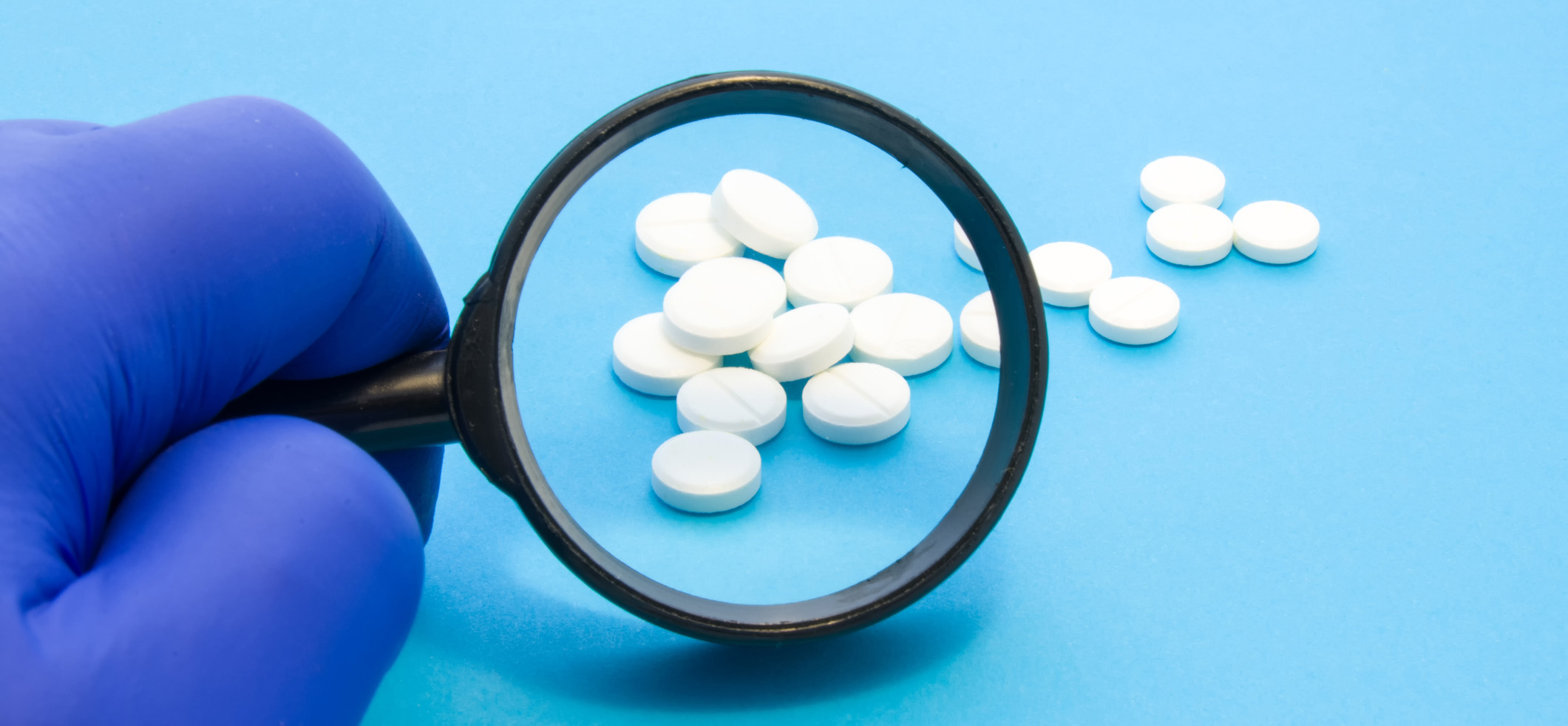
Is Fentanyl Common in Colorado?
In recent years, fentanyl has become increasingly common across the United States. According to the CDC, “the rate of overdose deaths involving synthetic opioids in 2021 was nearly 22 times the rate in 2013.”
While some regions may experience higher than average numbers, Colorado is not immune. In fact, according to the DEA, “fentanyl remains the leading cause of drug-related deaths in Colorado, increasing by more than 70 percent throughout the state in 2021.”
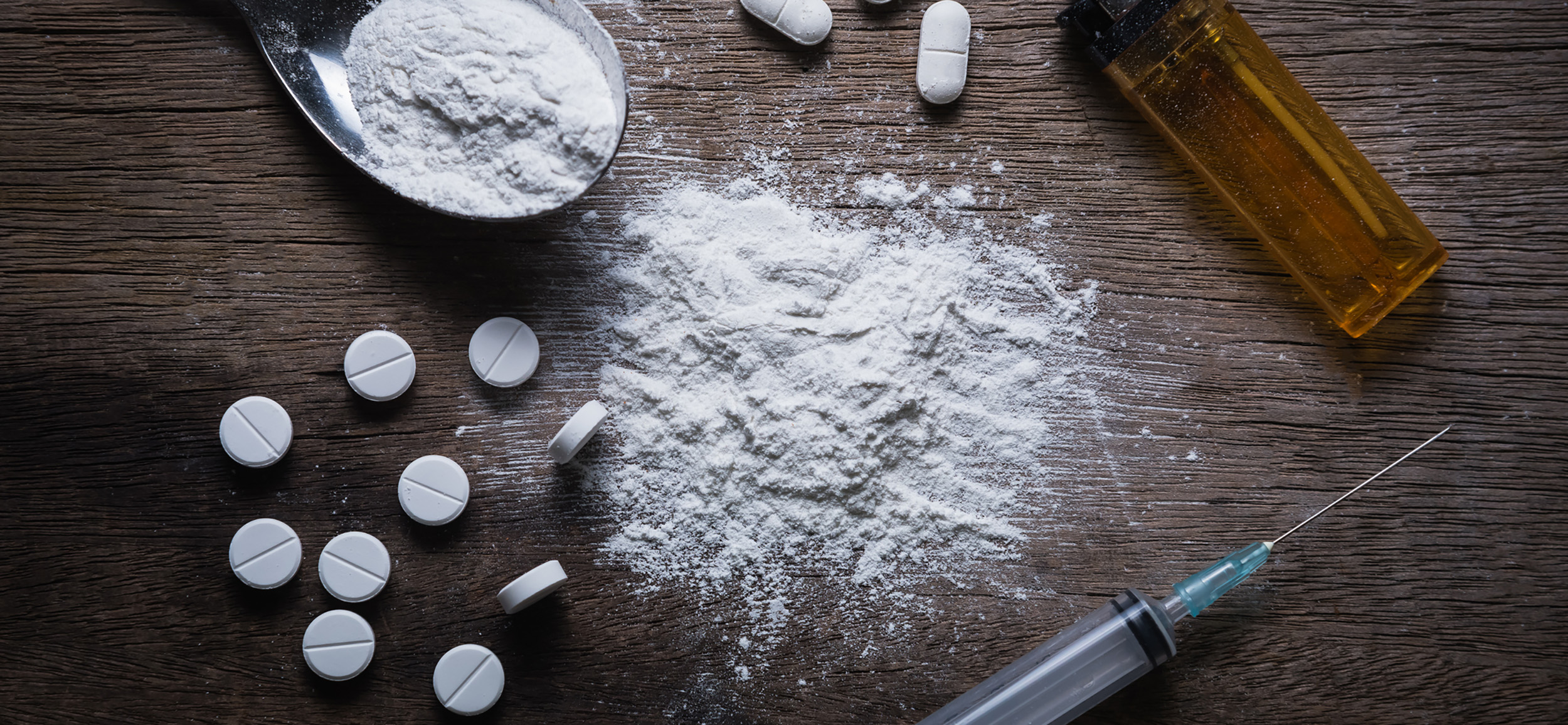
4 Tips for Staying Safe
Consuming fentanyl or any illegal or controlled substance is dangerous; however, there are choices you can make to help yourself and others to stay safer and reduce your risk of an overdose.
- Know where your substances come from
It’s always smart to know where your substances are coming from. Fentanyl poses a significant risk as it is often mixed with other drugs and is impossible to detect via scent or sight. It’s recommended to use a fentanyl testing strip on any substance, especially if you don’t know where it came from.
Testing strips and measuring scoops can be purchased from trusted sources, such as Dance Safe. Additionally, testing strips can be found in Blaster Boxes available on campus. - Never use alone
It’s always safer to use in the company of others, especially close friends or someone you can trust. If using as a group, try to stagger the times when people are using so there is at least one sober person in the group at all times. - Carry Naloxone
Having Naloxone on hand can be a life-saving decision. To help our students have these life-saving supplies on hand, we offer a specific Blaster Box, the Back-Up Box, with Narcan nasal spray, Stop Tops, fentanyl test strips and more supplies. Review this handout on obtaining Naloxone for additional ways to find Naloxone in your community. - Start slow
Always start slowly and use small amounts when trying an illicit substance. This will help you control the experience and significantly reduce your risk of an overdose. This is good advice even if you’re an experienced user.
The back-up box
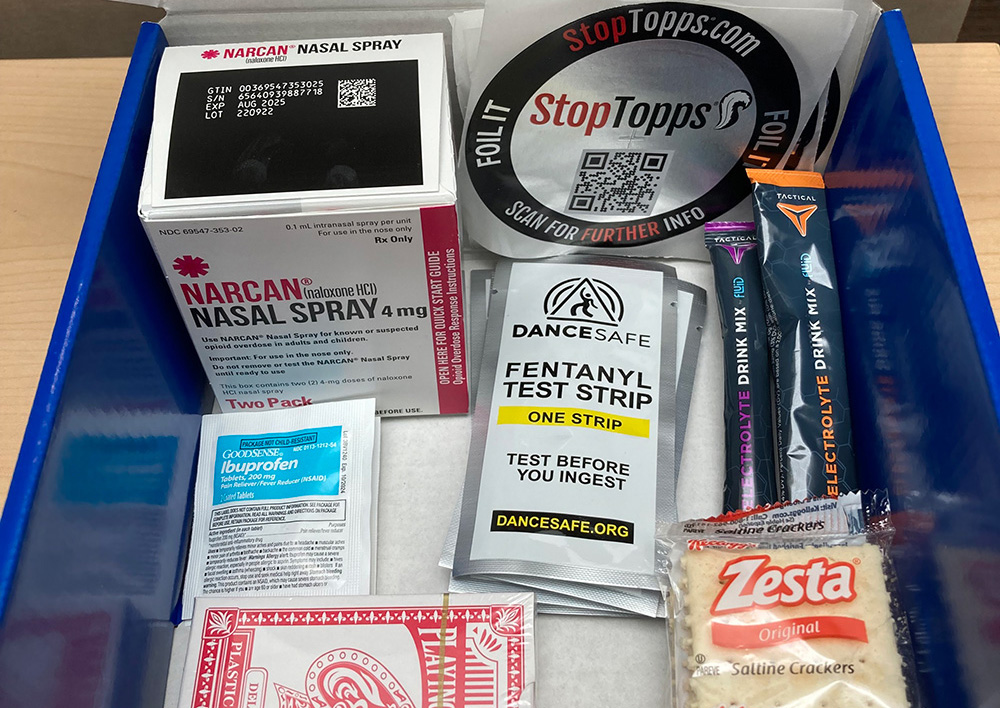
What Do I Do in the Event of an Overdose?
It’s important to know the common signs of an opioid overdose. These common signs include:
- Shallow or no breathing
- Blue or grayish lips or fingernails
- Small pupils
- Heavy wheezing or snoring sound
- Lack of response to stimulus (i.e. shaking or pinching)
If someone is showing one or more of these symptoms, you should immediately:
- Ask if the person is okay and seek a response
- Make a fist and use your knuckles to apply pressure to their sternum—this will check to see if they respond to stimulus.
If they don’t respond to either method, you should:
- Call 911
- Administer naloxone (if available)
- Perform CPR while waiting for medical support
Also remember that if naloxone is available, don’t be afraid to use it. Even if the person isn’t overdosing, naloxone will not harm them. When in doubt, don’t hesitate to use it.
911 Good Samaritan Law
The Colorado 911 Good Samaritan Law protects those who call for help in the event of an overdose emergency. The law states that a person is immune from criminal prosecution when they report an emergency drug or alcohol overdose to 911, a law enforcement officer or a medical professional.
This immunity also applies to anyone who stays at the scene until law enforcement or a medical responder arrives, regardless of whether or not they have been using alcohol or an illegal substance. The Colorado 911 Good Samaritan Law also extends to the individual who suffered the overdose event.
All students should know that their health, safety and general welfare are of the utmost concern to the faculty, staff, students and administration. To reflect this value, Mines has established an Amnesty Policy to reduce barriers related to seeking help during medical emergencies due to fear of potential policy violations.
View the full policy in Mines’ Student Code of Conduct, Section 6, B.
Additional Resources
If you or someone you know needs support or more information, please don’t hesitate to reach out or use any of our wellness resources available for students, faculty and staff.


